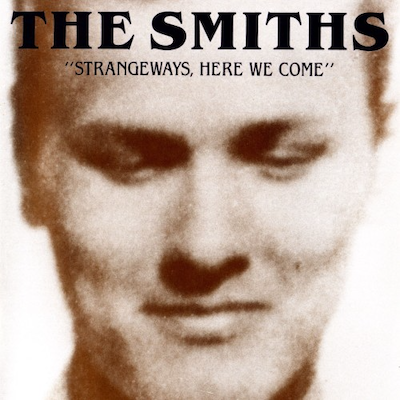6. The Smiths

Because Morrissey has not always aged as well as The Smiths’ music has, it is sometimes easy to forget how much I loved this band, and how as the eyes of friends I forced to listen to them wandered, I took the rejection as personal, in the way only music you truly love can exclude you from others. This song, even more than The Sex Pistols’ ‘EMI’ or Band Of Holy Joy’s ‘Look Who’s Changed With The Times’, is the ultimate account of what it is to sell out, and why you should not do it. It is sung from two points of view, one of which is that of an adoring fan (this split perspective in Smiths’ lyrics is something that is missed in discussions that focus on Morrissey basically singing his diaries), and is both a morality tale and a fate foretold. “You could have said no if you wanted to, you could have walked away, couldn’t you?”
Joy Division, and Ian Curtis, who I loved equally but who spoke to me less, could strike a similar note, but far less verbosely, and ‘New Dawn Fades’, which I nearly chose in the place of this, is less a story than a prediction and a warning. Mark Fisher claimed with characteristic insight that the difference between Curtis and Morrissey is essentially the distance between actual madness and mere eccentricity. But what I first saw in Morrissey was that essential vanity and narcissism needed to cling greedily to life, no matter how bad or painful it is, while Curtis was always and already past such things. That Morrissey’s preening self-laceration should make instinctive sense to me, probably resided in the notion that making something artful from pain was not only redemptive, but could be the difference between life and death. And that innate self-love, however unmerited or objectionable, was the kind of armour that might see me through the painful exposure of being compelled to write and live in print.


